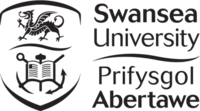 501-600
501-600 


Swansea University is a research-led university that has been making a difference since 1920. The University community thrives on exploration and discovery, and offers the right balance of excellent teaching and research, matched by an enviable quality of life. Set in parkland overlooking Swansea Bay on the edge of the breathtaking Gower Peninsula, the University's location is captivating. There's stunning coastal scenery on our doorstep (we're on the edge of the beautiful Gower Peninsula), yet we're within easy reach of Swansea, which offers a thriving cultural scene and the best of modern city life. With 15,921 students and 2,510 staff, Swansea's multicultural campus community provides a global perspective and opportunities to gain skills that last a lifetime. The vibrant mix of nationalities and cultures on campus greatly enriches our learning and teaching environment. With over 100 university partners across the world, many of our degree schemes offer the opportunity to spend a year or semester working or studying abroad. Alternatively, students can choose from a variety of summer programmes to gain valuable experience abroad during their summer vacation The University has six academic colleges: Arts and Humanities; Business, Economics and Law; Engineering; Human and Health Sciences; Medicine, and Science. The University's mission statement is: "Swansea University will provide an environment of research excellence, with research being undertaken that is world-leading and internationally recognised, and that informs all other activities at the University. Swansea will deliver an outstanding student experience, with teaching of the highest quality that produces graduates equipped for distinguished personal and professional achievement. The University community will be a powerhouse for economic growth in the regional economy, and will greatly enrich the community and cultural life of Wales. It will contribute to the health, leisure, and wellbeing of citizens in South West Wales and beyond." Swansea was the first campus University in the UK when it was founded in 1920 at the behest of industry. Its vision was to apply science to the needs of industry and give rise to a new generation of engineers and scientists who could drive the region’s growth and secure its economic future – that vision remains the same. We still have some of the best links with industry of any higher education institution in the UK and have many multinational companies as research partners. Swansea University’s researchers are pushing back the boundaries of scientific and academic thought – undertaking research that has global significance, and which touches every aspect of society, from culture, climate change, and business, to engineering, science, health and well-being. Many of our researchers are recognised internationally for their contributions to their field. Some examples include: The SPECIFIC(Sustainable Product Engineering Centre for Innovative Functional Industrial Coatings) project is a five year venture led by Swansea University and Tata Steel. It aims to transform buildings into ‘power stations’ by using functional coatings on steel and glass to enable energy capture, storage and release and will create ground breaking, clean, safe, renewable energy applications that will be industrialised and available commercially, within the life of the project. The Centre for NanoHealth (CNH), a joint initiative between Swansea University’s College of Engineering and the College of Medicine, is facing one ofthe biggest challenges facing the future of healthcare: to achieve earlier intervention in diagnosing diseases; to swiftly identify medical or surgical treatments and to deliver them - often in non-hospital environments such as in the home, community clinic or local doctor’s surgery. The publication ofThe Richard Burton Diarieseditedby Chris Williams, Professor of Welsh History and Director of the Research Institute for Arts and Humanities, has attracted global attention and accolades and revealed a very different side to the world famous actor’s public persona. The book is a result of painstaking research of the handwritten diaries, which Richard Burton began in 1939 and ended just before his death in 1984, which were donated to Swansea University in 2005 by his wife, Sally Burton. The diaries, along with other personal papers, are known as The Richard Burton Collection, and today forms a central part of the £1.2million Richard Burton Archives facility at the University’s Library. A unique project about Henry VIII's warshipThe Mary Rose, which sank in 1545, is providing new information about the Tudor age, thanks to 21st century technology. Scientists are working with the Mary Rose Trust to shed light on the lives of an elite company of professional archers who were on the ship. Scientists are examining their bones to look for activity related changes their skeletons whilst DNA samples could reveal more about the how the archers looked, where they were from and how they lived to help re-create a slice of The Swansea Moving Animal Research Team (SMART) research centre researches animal movement in its broadest sense. Its world-leading work includes examining the role of the environment in animal movement and distributions, and uses new technologies to gain access to particularly secretive species such as jellyfish, turtles, sharks, whales and sloths. The University is planning an ambitious campus expansion and development programme that will enable it to double in size and further enhance the student experience. Swansea University is moving ahead with exciting plans for a £450m Science and Innovation Campus. Plans for the new campus at a site on Fabian Way, in addition to the regeneration of our existing Singleton Park Campus, will create world-leading research, innovation and education facilities in Swansea. The project highlights our ambition to be a world top 200 university. It will enable us to attract inward investment to Wales and promote the growth of high-technology clusters. It will establish the region as a vibrant location for modern, high technology companies, bringing even greater eventual impact.
 501-600
501-600 
| Subject | Rank |
|---|---|
Business Administration | 20 |
Library & Information Science | 51-75 |
Geography | 76-100 |
Mechanical Engineering | 101-150 |
Computer Science & Engineering | 101-150 |
Energy Science & Engineering | 101-150 |
Hospitality & Tourism Management | 101-150 |
Oceanography | 151-200 |